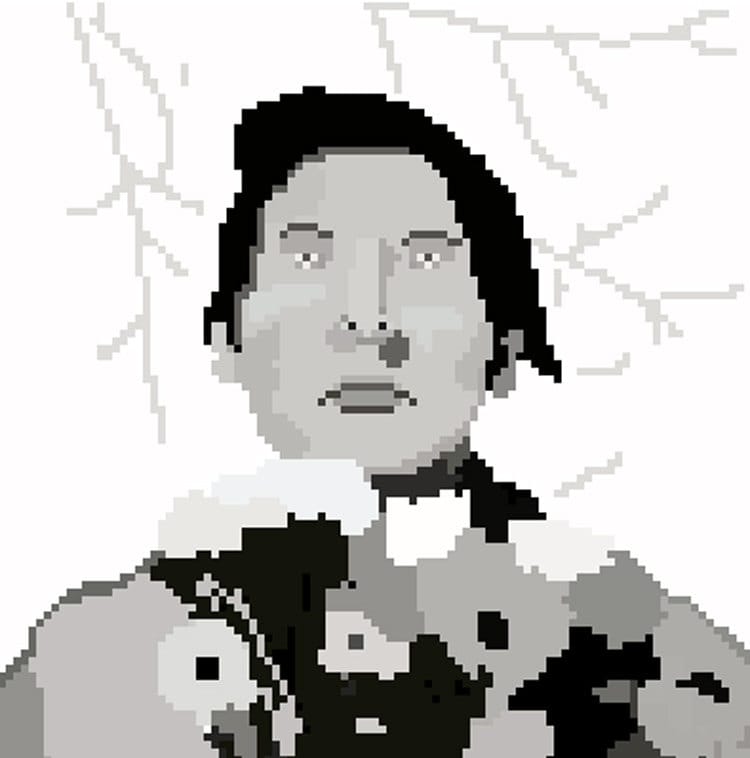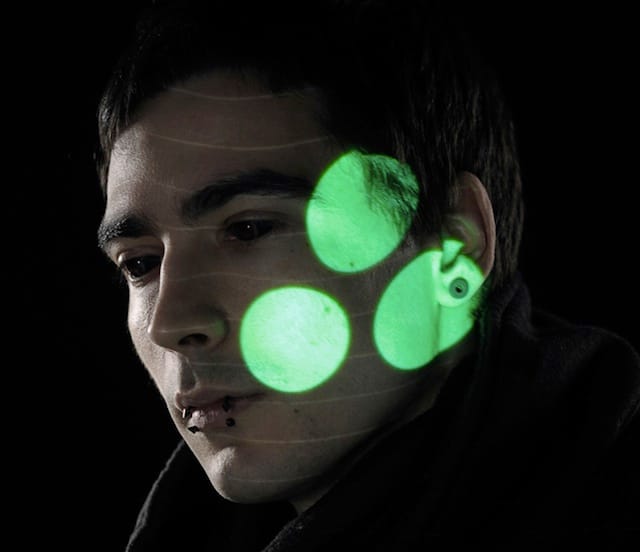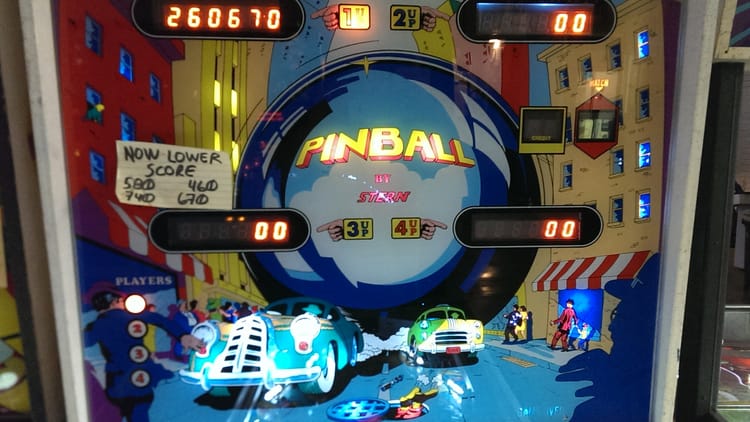Profile: Stephen Lavelle

Stephen Lavelle is one of today’s most prolific independent game developers. Lavelle describes his games as acts of performance—often casting the player in scenes, from the absurd to the brutally realistic, asking the player to keep up. He makes players experience hopelessness by making them wait in line, asks them to explore what it means to be human by whittling days away in a retirement home, and explores desire by using Google as a metaphor for our subconscious. Lavelle’s games are demanding, and, likewise, take a toll on their creator. I talked to Lavelle in December about what it was like to work on his first large-scale game English Country Tune and how he recouped after being mentally and physically drained.
/ / /
With English Country Tune, what came first, the desire to make a commercial game or the idea for the game?
The idea came first. There was a game jam last January. There were a lot of two-hour jams inside of that. For one of them I did a prototype along the lines of SpaceChem, where you’re trying to design a system that produces certain types of things. I got it sort of working, but there was really nothing to it.
A couple of months later I tried to fix a couple of things with it, and [the game] ended up getting a lot bigger and changing a hell of a lot. In July or August I decided I would buy an iPad and try to port it, and implicit in that was the decision to try and sell it. I liked the idea of finally trying to deal with new hardware—I’d just been dealing on PC with [the programming languages] Flash and Unity for a long time. It felt like the sort of game that might sell.
Is the idea to go commercial from now on?
No, it’s not. I just released another small free thing, a collaboration that I’ve been working on with Docky. We’ve been collaborating three years in total.
You usually make smaller games, and you keep a pretty breakneck pace. Did you find it hard to focus on just the one idea in English Country Tune for so long?
I found it hard, but a lot of the hardness was just the fact that I wasn’t able to detach myself to work on other things. It started off enjoyable because I was putting a lot of things together: It’s a reasonably complex system. Now that I have this set up, I have to finish it, and that’ll be a couple of months; and I couldn’t bring myself to work on anything else in good conscience. I just wanted to get it finished. The change of pace was definitely strange. Having finished [the game] now, I’m completely creatively drained. I’m just reading books to recuperate. I don’t really know what I’m going to do in the medium term now.
Is recharging an important part of your process?
It’s not that I didn’t want to deal with games—I’m just completely wrecked. As soon as I released the game I was in bed for a week. Thinking, “Oh God, I feel horrible.” And pretty much all of the ideas I have right now are for puzzle games. I don’t want to work on any puzzle games right now, I want to work on something else. I’ve just been obsessing about this. I like feeling a little bit of versatility of thought, and that had completely gone by the end of the project.
Do you get that back by reading? By watching films?
Reading seems to be the only way. I used to watch films and than I stopped. I used to be big on music, but I don’t really listen to music anymore. I haven’t been reading much over the last year, aside from technical stuff, but it seems that reading is the main thing that I get more out of than other activities.
“It’s more like performance, I guess. You’re putting yourself out there. You’re not making something for others to play with.”
What do you tend to read?
Well, I mean, I like reading technical things, it’s great. I like reading academic papers. But sometimes I just feel I need to go read some novels. Usually I pick something I don’t know much about.
Who influences you? Who do you play?
Well, SpaceChem, at the start of last year. Which I think is absolutely amazing. I think it’s really, really, really, really, really great. I respected Cogs quite a lot when I played it, even though there’s nothing I dislike more on principle than sliding-tile games. But for some reason it was acceptable.
Cogs did affect a little bit how I worked on English Country Tune. There was this basic prototype I did at the jam, and when I came back to it I thought, “Oh, this is gonna work in 3D,” and I made a bunch of levels for it. I realized that the levels I was making for it were really horrible. “This is the worst sort of game I can imagine; I really don’t want to play this. I would not want to solve these levels; I find them really unbearable. But, you know, maybe there’s something I could do. Cogs managed to do make sliding-tile puzzles, so maybe there’s a chance.”
English Country Tune is a very abstract game. How is this different from working on a smaller, more personal game like Queue, or something like Home? What kinds of different design philosophies go into it?
When the games are both the same scale … well … I feel for really small games, if it was a small puzzle game or a small, slightly more personal game, I guess I’d feel more exposed emotionally with the personal games.
Usually it’s slightly unpleasant working on personal games. It’s not necessarily enjoyable, whereas at least, sometimes, working on puzzle things, it can go like clockwork and be really quite enjoyable. With large-scale games you’re still personally and emotionally exposed regardless of what it is. It doesn’t go like clockwork the whole time.
What is it that makes it unpleasant?
It’s more like performance, I guess. You’re putting yourself out there. You’re not making something for others to play with. It’s a sort of thing I can imagine somebody approaching in a therapeutic matter, where it helps them get it off their chest. But, it usually makes me feel a little worse. It takes something out of you.
You used to be a coder?
I worked as a programmer for a year and a half. That was for Realtime Worlds. They were working on this large multiplayer [Grand Theft Auto-style] game, APB.
Did you find that structure stifling?
I went into it with a software engineering mindset. I was writing code and I was working on the user interface. I wasn’t doing that much with gameplay itself—I was structuring menus and I was talking to user-experience people and I wasn’t making decisions with design or gameplay. It was a different mindset.
I think once or twice I tried to involve myself, but it was just a completely different vocabulary. I wasn’t able to contribute very much.
“What I want to do, I can do. I don’t need these large organizations of people.”
Did making your own games satisfy that itch?
I was just there [at Realtime Worlds] for a small amount of time, but my impression was that the sheer force of will you have to have to get anything done, to get even the smallest thing done, is absolutely gigantic. When I compare that to going home and in a couple of hours working on something that I find really satisfying, it doesn’t really compare. What I want to do, I can do. I don’t need these large organizations of people.
You’ve collaborated before—with Terry Cavanagh on Judith and with Docky, which you mentioned earlier. How do you find that’s different?
It’s frequently quite time-consuming. I like it to actually be a collaboration. I’m not really fond of people doing definite, different things, and there’s one person managing other people. With Terry, when we were working on Judith, that was great because we actually both had somewhat different ideas of what we wanted to make. We were sort of working against one another, sort of both putting in our slightly conflicting interpretations of what was going on. That’s what a collaboration should be: It should be more than just one person’s vision.
Living with other developers, do you guys play off each other, feed off each other?
We talked quite a lot. I live with [developers] Sophie Houlden and Terry Cavanagh. They wouldn’t have any more input than the testers overall, but they were a lot of emotional help—just having them to talk to, about anything, about what I’m going to cook for dinner, about anything. I don’t think I would’ve been able to do this living by myself. Because they’re working on games they can help with technical problems, gameplay things, let me know what they think of something. Somebody to bounce an idea off of, that’s important. It makes a big difference.
Illustration by Trip Carroll



